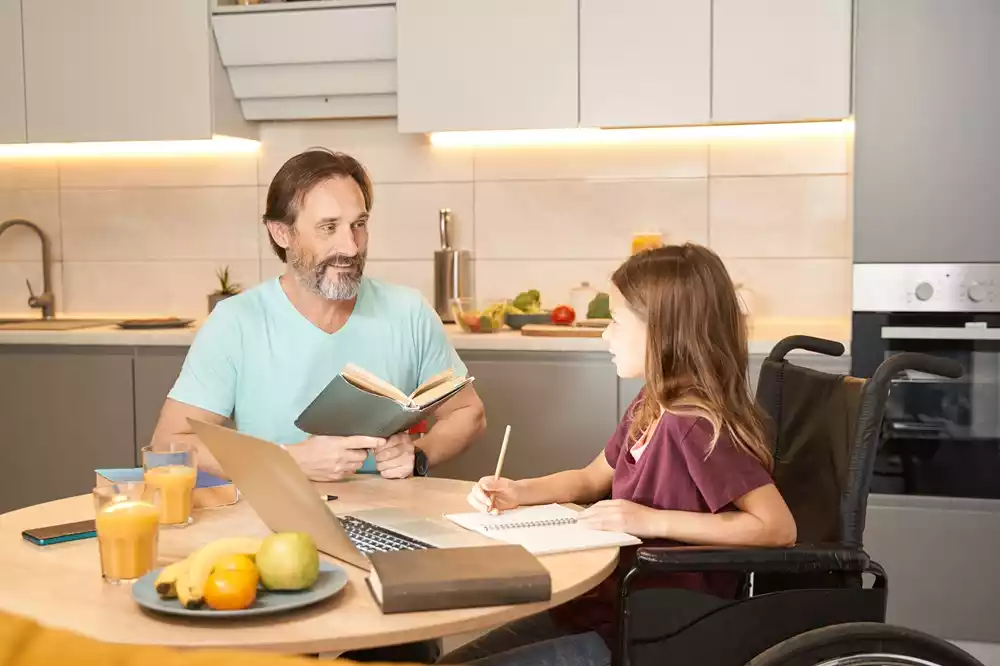HOW DO I STARTED
- Home
- How Do I Started
How To Get Started WithAccess Disability Services
Learn How To Get Started with Home Care
The best way to provide the highest quality level of care requires an initial meeting where family and/or client meet with a Visiting Access Disability Services coordinator. This meeting includes a detailed review of care needed, schedule request (if known), specific requests of family or client, and any other concerns. This is an excellent opportunity to ask questions of Visiting Access Disability Services and it is an excellent opportunity for us to get to know you as well. If you are feeling overwhelmed, we can make recommendations as we have much experience in understanding what works in certain situations.

During Initial Meetings With NDIS Participants, Several Key Topics Are Commonly Discussed To Ensure A Comprehensive Understanding Of The Individual's Needs And To Establish A Suitable Support Plan. These Topics May Include:
- Introduction and Welcome: Brief introductions and an overview of the purpose of the meeting.
- Participant’s Background: Personal background, including living situation, family support, and any relevant cultural or linguistic considerations.
- Current Supports and Services: Discussion about existing services and supports the participant is receiving.
- Goals and Aspirations: Exploration of the participant’s short-term and long-term goals, aspirations, and desired outcomes.
- Daily Living Activities: Assessment of the participant’s ability to perform activities of daily living and any areas where assistance may be needed.
- Health and Medical Information: Review of the participant’s health and medical history, including any diagnoses, medications, or specific healthcare requirements.
- Mobility and Accessibility: Evaluation of the participant’s mobility and accessibility needs, including any assistive devices or modifications required.
- Social and Community Engagement: Exploration of the participant’s social interests, community involvement, and preferences for social activities.
- Communication and Decision-Making: Discussion on how the participant communicates, expresses preferences, and makes decisions.
- Cultural and Spiritual Considerations: Identification of any cultural or spiritual considerations that may impact the participant’s preferences for support.
- Support Coordination and Planning: Explanation of support coordination services and the planning process for developing an NDIS plan.
- Budgeting and Funding Allocation: Overview of how funding is allocated, the budgeting process, and flexibility in using funds to meet individual needs.
- Any Immediate Concerns or Issues: Encouragement for the participant to share any immediate concerns or issues that may require urgent attention.
By addressing these topics during the initial meeting, NDIS Support Coordinators can gather comprehensive information to create a tailored support plan that aligns with the participant’s goals and enhances their overall well-being
Get in touch to organise a face to face discussion about how we can help you. We will create a personalised care plan for you based on your needs and what you want out of your supports. Call Us On – 02 8712 6004 / 0406 055 184.
Our Services
- Assist Personal Activities
- Therapeutic Support
- Support coordination
- Community Participation
- Cooking
- Lawn mowing
- Counselling
- Art therapy
- Developing-Life Skills
- Assist travel/transport
- Community Nursing care
- Home modification
- Group Centre Based Coordination
- Specialised Support Coordination
- Assist Access/ Maintain employment
- Accommodation/ Tenancy Assistance
- ABA Therapy
- Early Childhood Support
- Report Writing for NDIS
- High Intensity daily Personal Activities
- Plan Management
- Early Childhood Intervention
- Behaviour support
CONTACT US



